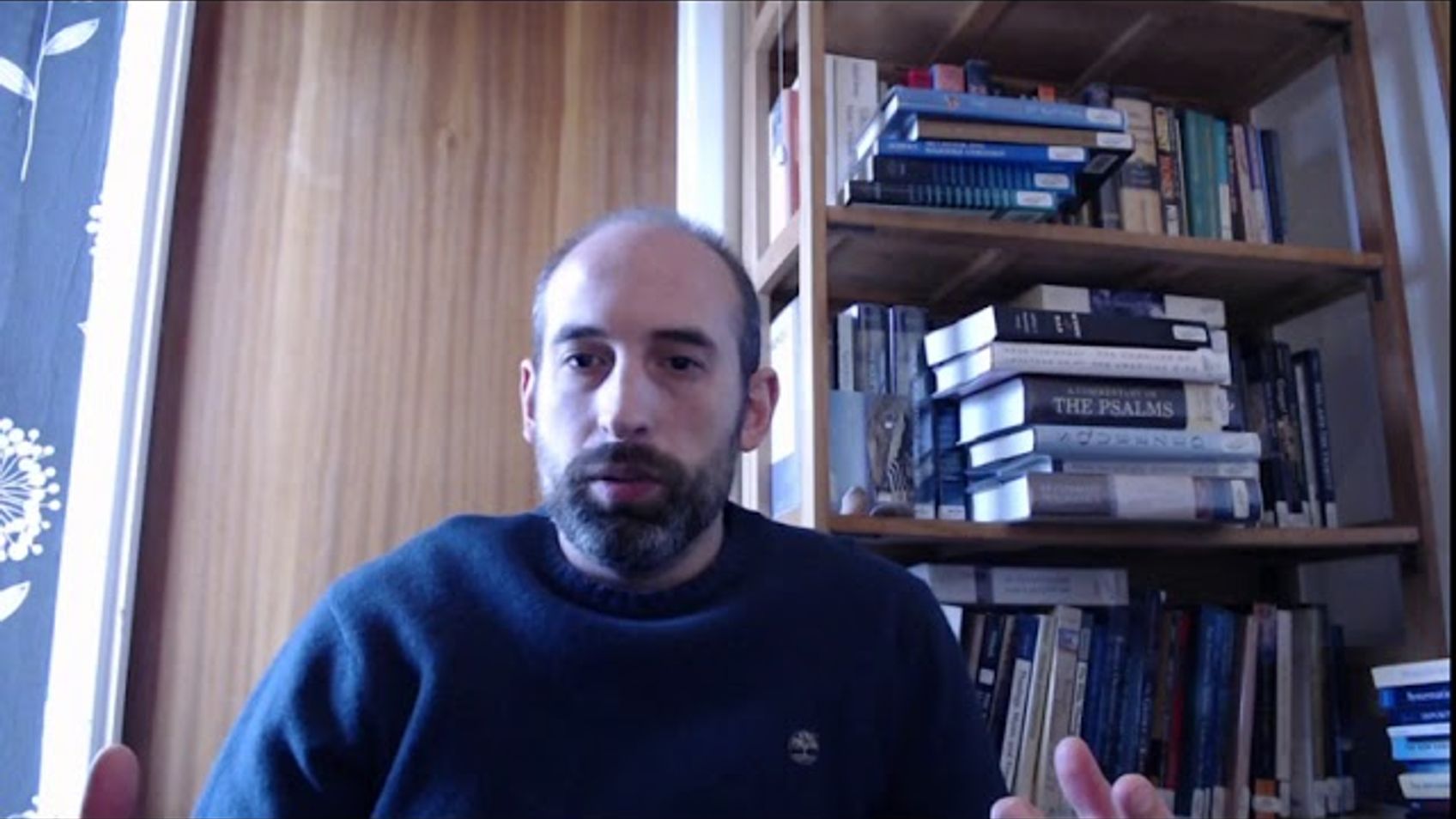Q&A#52 Does Baptism Save Us?
September 20, 2018

Alastair Roberts
Today's question: "In Q&A#46, you seem to say that baptism (with water) is necessary for salvation. Am I interpreting your perspective correctly, and if so, what do you think about the man on the cross next to Jesus going to heaven without baptism?"
See Q&A#46 here: https://www.youtube.com/watch?v=yD1g9k-Oj6g.
If you have enjoyed these videos, please tell your friends and consider supporting me on Patreon: https://www.patreon.com/zugzwanged.
My new Soundcloud account is here: https://soundcloud.com/alastairadversaria. You can also listen to the audio of these episodes on iTunes: https://itunes.apple.com/gb/podcast/alastairs-adversaria/id1416351035?mt=2.
More From Alastair Roberts

Q&A#53 Echoes of the Eucharist?
Alastair Roberts
September 21, 2018
Today's question: "What would be a text that you would go to demonstrate the multifaceted elements of the Eucharist? Can you recommend any books or re

Q&A#54 The Two Kingdoms
Alastair Roberts
September 22, 2018
Today's question: "Could you say more about the Two Kingdoms theology—especially how it need not fall back into a narrow pietism?"
Brad Littlejohn, '

Q&A#55 More on Two Kingdoms
Alastair Roberts
September 23, 2018
Responding to questions raised about this video: https://www.youtube.com/watch?v=nKXN318EZ-g.
Brad Littlejohn, 'The Two Kingdoms: A Guide for the Per

Q&A#51 Ten Stimulating Bible-Related Books
Alastair Roberts
September 19, 2018
Today's question: "What are the ten most stimulating Bible-related books that you have read?"
1. James B. Jordan, 'Through New Eyes' - https://amzn.t

Summary and Discussion of Matthieu Pageau 'The Language of Creation'
Alastair Roberts
September 18, 2018
This is a summary and discussion of Matthieu Pageau's 'The Language of Creation: Cosmic Symbolism in Genesis' - https://amzn.to/2NkGxMa.
If you have

Q&A#50 Is Abortion to be Solved by Controlling Male Sexual Behaviour?
Alastair Roberts
September 16, 2018
This video is a response to a widely-shared, much discussed, and controversial Twitter thread: https://twitter.com/i/moments/1040468130433097728.
Wit
More on OpenTheo

Can Two Logical People Come to Conflicting Conclusions Without Committing a Fallacy?
#STRask
January 8, 2026
Questions about whether two logical people can come to conflicting conclusions on a topic without committing a fallacy, how Greg, as a public figure,

Are You Accursed If You Tithe?
#STRask
December 15, 2025
Questions about whether anyone who tithes is not a Christian and is accursed since Paul says that if you obey one part of the Mosaic Law you’re obliga

How Do You Justify Calling Jesus the Messiah?
#STRask
December 18, 2025
Questions about how one can justify calling Jesus the Messiah when he didn’t fulfill the Hebrew messianic prophecies, and whether the reason for the v

Are Demon Possessions and Exorcisms in the New Testament Literal?
#STRask
December 11, 2025
Questions about whether references to demon possessions and exorcisms in the New Testament are literal, how to talk to young children about ghosts, an

Protestants and Catholics: What’s the Difference? With Chad Van Dixhoorn, Blair Smith, and Mark McDowell
Life and Books and Everything
November 26, 2025
How should Protestants think about the Catholic Mass? About the Eucharist? About the history and development of the papacy? In this panel discussion,

Prove to Me That Jesus Is Not a Created Being
#STRask
January 26, 2026
Questions about why we should think Jesus is not a created being, and what it means to say God became fully human if part of being human means not bei

Does God Really Need a “Pound of Flesh” to Forgive Sins?
#STRask
January 12, 2026
Questions about how to answer the challenge that God doesn’t need a “pound of flesh” to forgive sins but can simply forgive, and whether the claim in

Does God Hear the Prayers of Non-Believers?
#STRask
February 26, 2026
Questions about whether or not God hears and answers the prayers of non-believers, and thoughts about a church sign that reads (as if from God), “Just

How Can I Explain Modesty to My Daughter?
#STRask
November 27, 2025
Questions about how to explain modesty to a nine-year-old in a way that won’t cause shame about her body, and when and how to tell a child about a pre

Shouldn’t I Be Praying for My Soul Rather Than for Material Things?
#STRask
February 2, 2026
Questions about whether we should be praying for our souls rather than for material things, why we need to pray about decisions, whether the devil can

What Is Wrong with Wokeness? With Neil Shenvi
Life and Books and Everything
January 19, 2026
In this timely interview, Kevin talks to Neil Shenvi about his new book (co-authored with Pat Sawyer), entitled “Post Woke: Asserting a Biblical Visio

How Can We Know Who Is Teaching the Same Gospel Paul Taught?
#STRask
February 16, 2026
Questions about how we can know who is teaching the same gospel Paul taught, and whether or not Jeremiah 1:5 supports the idea that we pre-existed in

Why Should We Pray If God Already Knows What’s Going to Happen?
#STRask
January 29, 2026
Questions about why we should pray if God already knows what’s going to happen, how the effectiveness of prayer is measured, and whether or not things

The Making of the American Mind with Matthew Spalding
Life and Books and Everything
February 2, 2026
The United States is unique in how much attention it pays to its founding, its founders, and its founding documents. Arguably, the most famous and mos

How Should I Respond to an LGBTQ Person Who Says He Feels Good About Who He Is?
#STRask
March 2, 2026
Questions about responding to an LGBTQ person who says he feels good about who he is, and whether—since we all have sin in our life we don’t consider
